Six-Chart Sunday (#17) – Generation Gaps
6 Infographics from the week + 1 interview (Morgan Housel, the "Mark Twain of financial writing")
Next live event: Wednesday 5/22 at Noon ET with Dmitri Alperovitch to discuss his new book “World on the Brink”. Register here.
Values Gap: Gen Z is less than half as likely as the Baby Boomers to say Patriotism, Belief in God & Having Children are “very important” to them. (Public Opinion Strategies poll for NBC News, recommend their entire deck).
Economics Gap: Just 40% of those ages 18-29 view capitalism positively vs 73% of those 65+. Similarly, 44% of 18-29 year-olds have a positive impression of socialism vs 28% of seniors. Kids these days…
Voting Gap: Younger voters are significantly less-likely to turnout and vote in U.S. elections. (US Elections Project; Presidentials show below but same trend in midterm elections).
Independence Gap: More than half of Gen-Z and Millennial voters consider themselves political Independents vs 33% of Baby Boomers & 26% of the Silent Generation. (Gallup)
Happiness Gap: Americans under 30 rating their lives came in 62nd among nations in the World Happiness Report. Americans 60+ ranked 10th. (Iceland & Denmark cracked the top 5 in both age groups).
Foreign Policy Gap: “31% of adults under 30 say their sympathies lie either entirely or mostly with the Palestinian people, while 14% say their sympathies lie entirely or mostly with the Israeli people. Older Americans, by comparison, are more likely to sympathize with Israelis than Palestinians. Among people ages 65 and older, 47% say their sympathies lie entirely or mostly with the Israeli people vs just 9% who sympathize entirely or mostly with the Palestinians.” (Pew)
VIDEO
The “Mark Twain of financial writers,” author Morgan Housel joined us to discuss his latest NYT bestseller “Same as Ever.”

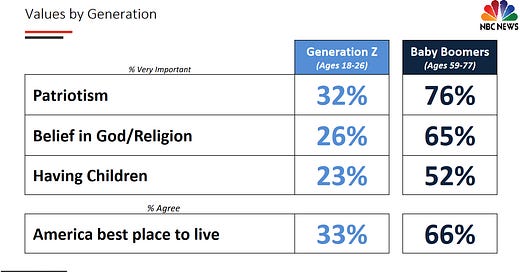



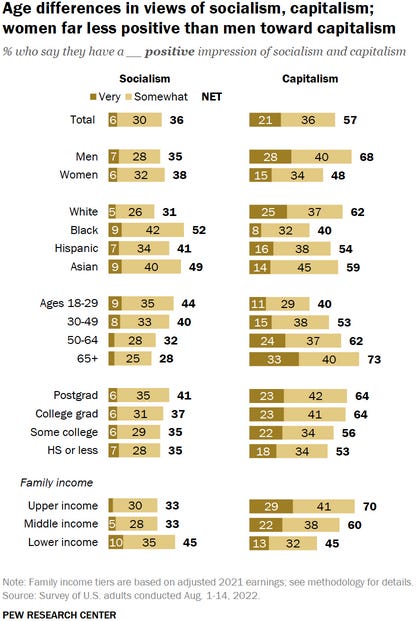
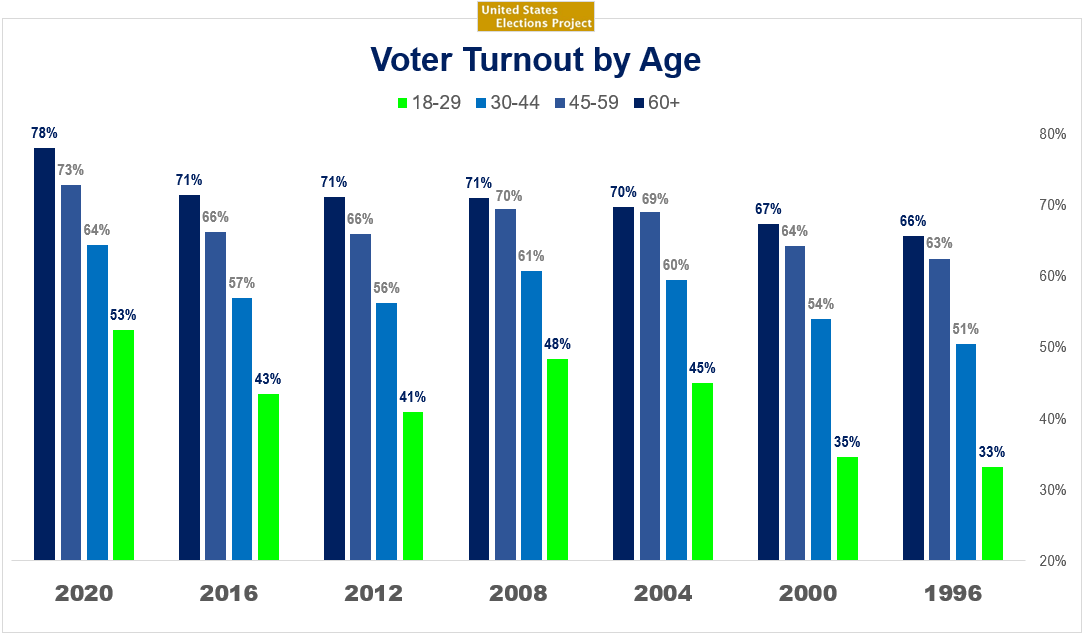
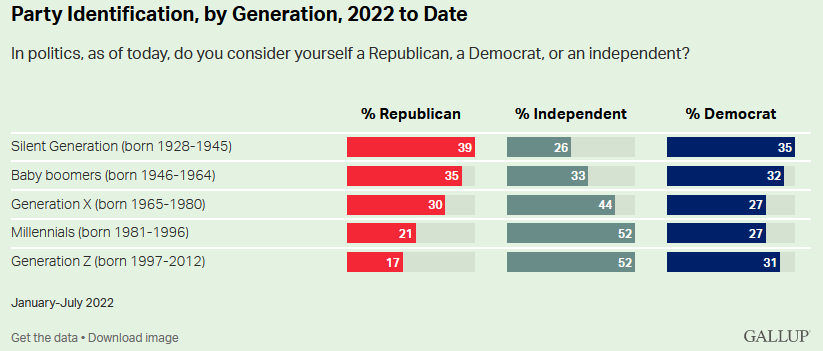
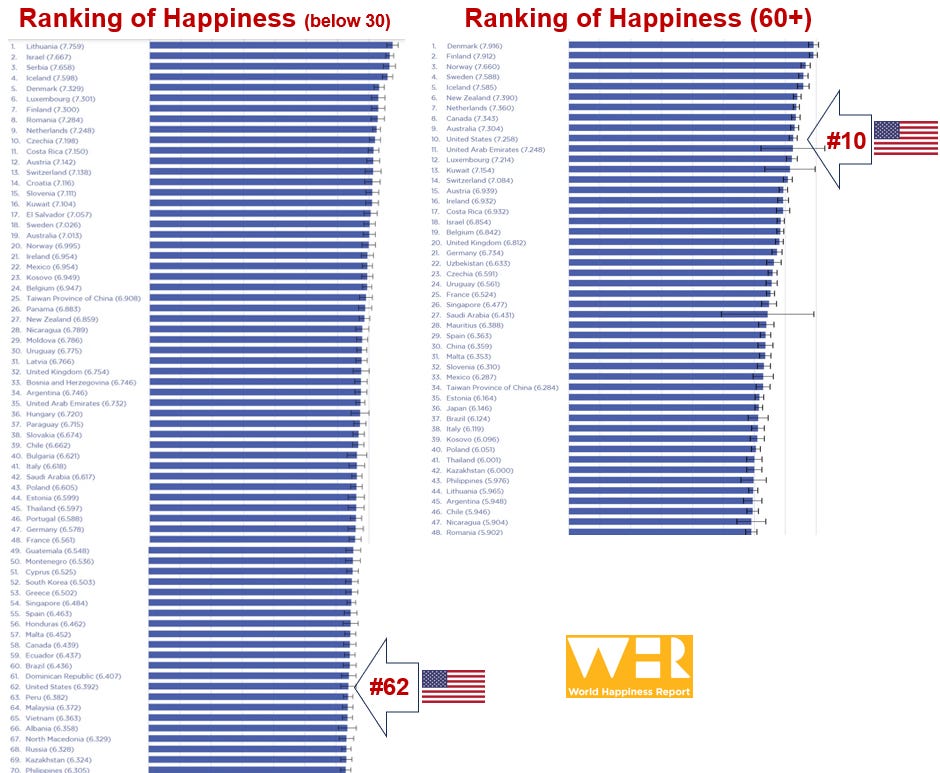
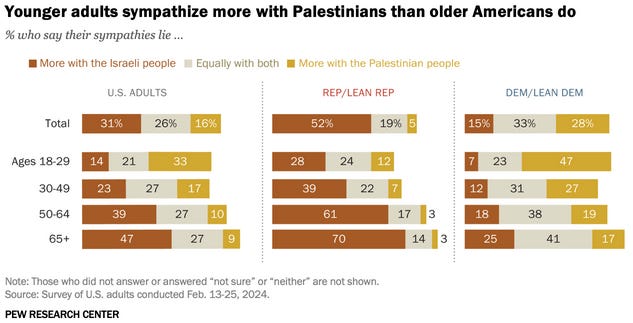
Wow. These charts are evidence that education is too important to leave to educators. Busy parents need to understand that the education system, including post-secondary school, competes with, not supplements, their values and beliefs.
#1- Values Gap- this data seems very skewed. As if those 4 values are the only ones that exist? If Gen Z eschews those values, then what DO they value? Where is that data? (looked at the source deck and it is just as skewed- paints a very specific picture of younger generations). It would certainly better explain their unhappiness (which is not likely the result of "being talked into believing so")
Morgan Housel = Brilliant. Could listen to him all day.
"If you tell people what they want to hear, you can be wrong indefinitely without penalty." - sadly 100% true.